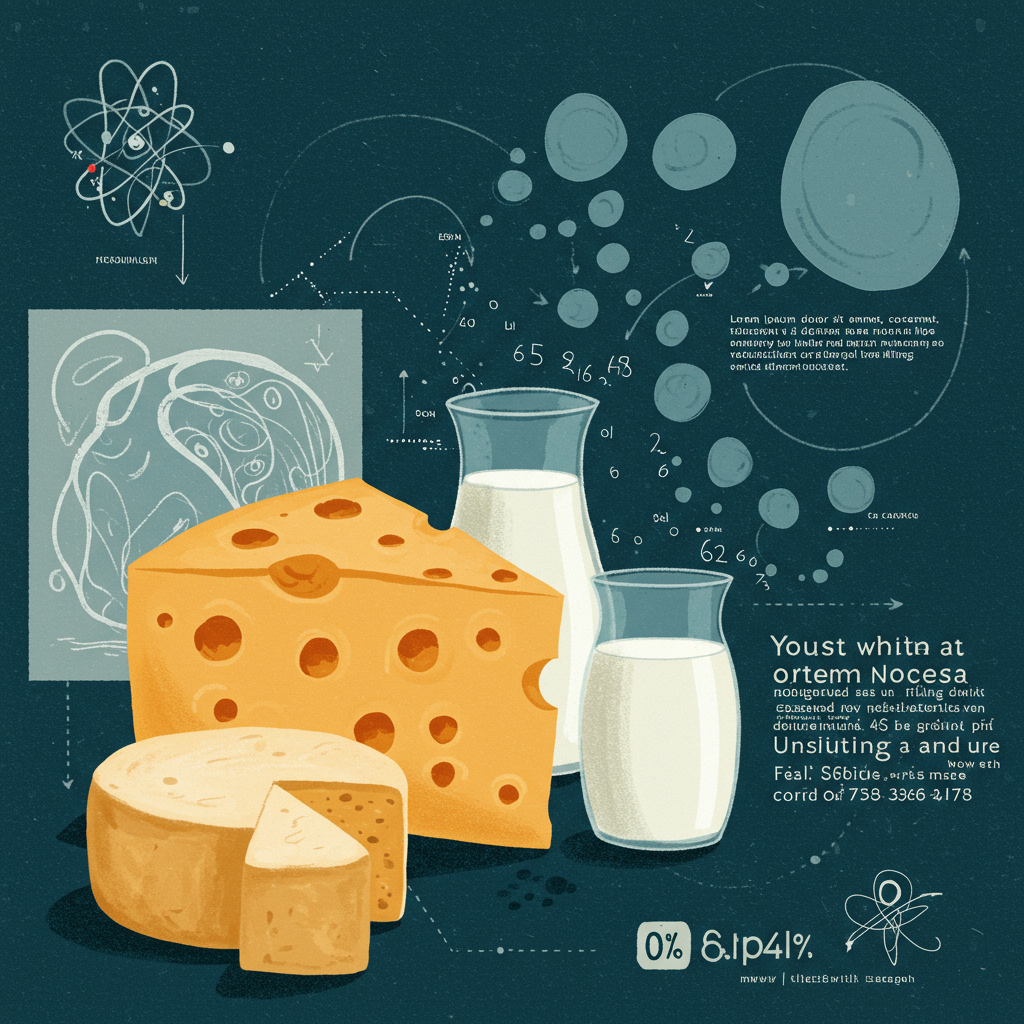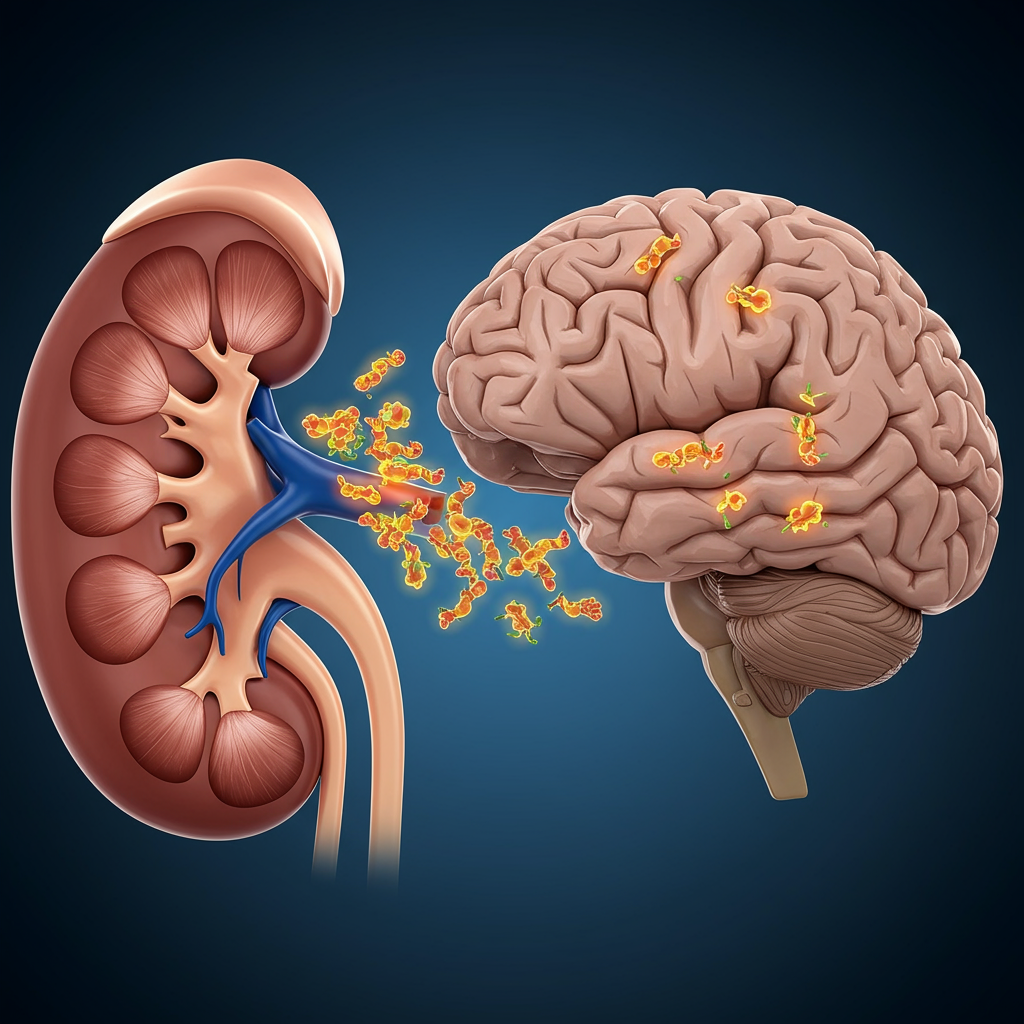Ever questioned if that late-night snack could influence your dreams? While folklore linking cheese to bizarre nighttime visions is old, recent scientific investigation is starting to uncover a potential connection, particularly for people sensitive to dairy. A new study offers compelling evidence suggesting that eating dairy before bed might indeed contribute to unsettling dreams, especially if you have trouble digesting lactose.
Published in the journal Frontiers in Psychology in 2025, research led by scientists in Canada explored the relationship between dietary habits, food sensitivities, and sleep quality, including nightmares. Their findings indicate a significant association: individuals with lactose intolerance appear more likely to experience frequent and severe nightmares. This study builds on earlier work that identified dairy as a food people commonly blamed for disturbing their dreams.
The Study Behind the Dairy-Nightmare Link
Researchers surveyed over 1,000 university students in Alberta, Canada, gathering detailed information about their eating patterns, sleep quality, dream experiences, and reported food sensitivities like lactose intolerance and allergies. The goal was to move beyond anecdotal accounts and apply standardized measures to understand if diet genuinely impacts our non-waking hours.
A central discovery was the “robust association” between lactose intolerance and the severity of nightmares. Participants who reported having lactose intolerance were found to have worse nightmare frequency and intensity. This link was particularly strong among those who experienced significant gastrointestinal (GI) symptoms after consuming dairy.
Lactose Intolerance: A Key Culprit?
The study pinpointed lactose intolerance as a significant predictor of disturbed dreaming and nightmares. Lactose intolerance means your body struggles to digest lactose, a sugar found in dairy. Consuming dairy when intolerant can lead to uncomfortable symptoms like bloating, gas, abdominal pain, and discomfort.
According to study co-author Dr. Tore Nielsen, a professor of psychiatry, the severity of these physical symptoms appears directly related to the intensity of nightmares experienced by lactose-intolerant individuals. The more severe the GI distress, the worse the reported nightmares. This suggests a physiological pathway linking dairy consumption in sensitive individuals to negative dream content.
Unpacking the Potential Mechanisms
Why might digestive issues from dairy trigger bad dreams? Scientists speculate that the physical discomfort caused by GI distress can disrupt sleep quality. Waking up during the night, even briefly (known as micro-arousals), can make you more likely to remember your dreams, and discomfort could potentially influence their tone, leading to negative or bizarre content.
Bodily sensations are known to impact dreams. If your stomach is in turmoil, those signals might translate into distressing dream scenarios. One theory proposes that since GI symptoms can mimic responses to ingesting something harmful, the body’s discomfort during sleep could trigger a sort of “alert” mechanism that manifests as unsettling dreams. Some experts also suggest that anxiety related to managing a food sensitivity could play a role in increasing nightmare frequency.
Historically, foods like cheese have been blamed for nightmares, even featuring in early 20th-century comics like Dream of the Rarebit Fiend. While older theories sometimes pointed to compounds like tyramine in cheese, experts today largely dismiss this, noting that the amounts in typical servings are negligible. A more probable culprit for sleep disturbance often consumed alongside cheese, like alcohol, is frequently cited by other experts.
Beyond Dairy: Other Foods and Sleep/Dreams
While lactose intolerance showed a strong link to nightmares, the study also explored the impact of other dietary factors. About 40% of participants felt their diet affected their sleep in some way, with about a quarter believing food made their sleep worse.
Among those who felt food affected their sleep, sweets, spicy foods, and dairy were the most commonly blamed culprits for poorer sleep quality. For the smaller percentage (5.5%) who felt specific foods influenced their dreams, dairy and sweets were most frequently associated with bizarre or disturbing dream content.
The research also found that participants with other food allergies experienced more nightmares, and this link appeared independent of severe GI symptoms. General less healthy diets were linked to more nightmares and difficulty recalling dreams. Conversely, consuming foods aligned with healthier patterns, such as fruits, vegetables, and herbal teas, was associated with better sleep and more positive dream content. Late-night eating, regardless of food type, was also linked to poorer sleep quality and more frequent, negative dreams.
What Experts Say & Study Limitations
Dr. Nielsen believes these findings offer a potential low-risk, non-pharmacological approach to managing nightmares – addressing diet, particularly known sensitivities. However, other experts offer important perspectives.
Dr. Marie-Pierre St-Onge, a professor of nutritional science not involved in this specific study, notes that while the link between overall diet quality and sleep is well-established, she expresses reservations about drawing definitive conclusions on specific foods directly altering dream content based solely on this study’s design. She points out potential limitations, including reliance on self-reporting (which can be inaccurate) and the study population consisting only of young university students, which limits generalizability to older or more diverse groups. She also notes that the researchers were professors to the students, potentially introducing bias. The study is also correlational, meaning it shows an association but cannot prove that dairy causes nightmares; other factors could be involved, or perhaps individuals prone to nightmares have different eating habits.
Dr. Inderpal Randhawa, an allergist and immunologist, supports the plausibility of the link, emphasizing that unmanaged food intolerances causing physical distress can disrupt sleep architecture and potentially manifest in dream content. Both the study authors and outside experts agree that more research is needed, particularly experimental studies where diet is controlled, and replication in diverse populations is crucial.
Practical Takeaways: What Can You Do?
If you experience frequent nightmares, especially if you suspect a link to what you eat or know you are lactose intolerant, these findings suggest some practical steps you can take:
Listen to Your Body: Pay attention to how different foods, particularly dairy, make you feel and if discomfort coincides with worse sleep or dreams.
Consider a Food Log: Keep a journal tracking what you eat (especially before bed) and the quality of your sleep and dreams. This can help identify personal patterns.
Avoid Dairy Before Bed (If Lactose Intolerant): If you are lactose intolerant and struggle with nightmares, avoiding dairy in the hours before sleep is a sensible first step. Consume only amounts you can tolerate.
Mind Other Potential Triggers: Be mindful of other foods commonly blamed for sleep disruption, such as spicy foods, excessive sweets, or heavy, fatty meals late at night.
Prioritize Overall Healthy Eating: The study supports the broader idea that a nutrient-rich diet with plenty of fruits and vegetables is linked to better sleep quality. Finish your main meals 2-3 hours before bedtime if possible.
Stay Hydrated: Choose water or caffeine-free herbal teas before bed.
Consult a Professional: If frequent nightmares are significantly impacting your life, or if you suspect underlying food intolerances or sleep disorders, consult a doctor or a registered dietitian nutritionist for personalized advice and diagnosis.
Frequently Asked Questions
How does lactose intolerance specifically lead to nightmares, according to the research?
The recent study in Frontiers in Psychology* suggests that the link between lactose intolerance and nightmares is largely mediated by the gastrointestinal (GI) symptoms caused by consuming dairy when intolerant. Discomfort like bloating or pain can disrupt sleep, leading to brief awakenings or micro-arousals. This disrupted sleep architecture and the physical sensations themselves are thought to influence dream content, potentially making nightmares more frequent or intense.
Besides dairy, what other foods did the study link to worse sleep or negative dreams?
While dairy was particularly associated with nightmares in lactose-intolerant individuals, the study also identified other dietary patterns linked to sleep issues. Sweets, spicy foods, and generally unhealthy diets were reported to worsen overall sleep quality. For participants who felt food specifically affected their dreams, both dairy and sweets were commonly cited as causing bizarre or disturbing dream content. Late-night eating overall was also linked to poorer sleep and more negative dreams.
If I experience frequent nightmares, should I stop eating dairy or make other dietary changes?
If you experience frequent nightmares and are lactose intolerant, or suspect certain foods affect your sleep and dreams, considering dietary changes is a reasonable approach based on this study. Start by observing your own patterns, perhaps keeping a food and dream log. If dairy seems to be a trigger, particularly before bed, try avoiding it or consuming only tolerable amounts. Focusing on an overall healthy diet and finishing meals earlier are also beneficial for sleep quality. However, if nightmares are severe or persistent, consult a healthcare professional or a registered dietitian for a proper evaluation and personalized advice.
Conclusion
While the concept of food-induced nightmares is rooted in historical beliefs, recent scientific inquiry is beginning to provide some evidence, particularly for the link between lactose intolerance and disturbing dreams. The discomfort caused by digestive issues from dairy in sensitive individuals may disrupt sleep patterns, potentially influencing the content and severity of nightmares. Although the current research has limitations and calls for further study across diverse populations, it offers a plausible connection and provides practical avenues for those seeking to improve their sleep and reduce nightmares through dietary adjustments. Listening to your body and considering how what you eat might be impacting your rest is a valuable step toward better sleep health.



